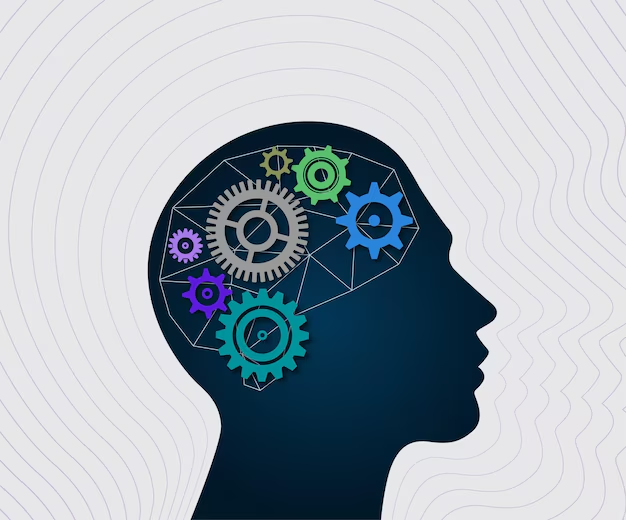
The Architect’s Guide to Resilience: A Comprehensive Blueprint for Modern Stress Management
The Modern Epidemic: Deconstructing and Defeating Chronic Stress
In our hyper-connected, fast-paced world, stress has become more than just a fleeting feeling of pressure; it’s a pervasive environmental toxin. We experience it in our careers, our personal finances, and even in our pursuit of a perfect work-life balance. While acute stress—the kind that sharpens our focus to meet a deadline—can be beneficial, chronic stress is a corrosive force. It silently degrades our physical and mental health, much like constant, low-grade mechanical pressure can lead to a stress fracture in a bone. This constant state of high alert disrupts our physiological systems, impacting everything from sleep health to our relationships. Understanding the architecture of stress—its triggers, its pathways through the body, and its ultimate impact—is the first critical step toward building a resilient, healthier life. This article provides a comprehensive blueprint for stress management, moving beyond simple platitudes to offer actionable, evidence-based strategies for deconstructing its power and reclaiming your well-being.
Section 1: The Science of Stress: Understanding the Physiological and Psychological Impact
To effectively manage stress, we must first understand what it is and how it works. At its core, stress is a biological response to a perceived threat. When your brain detects a stressor—be it a looming project deadline, a financial worry, or a heated argument—it triggers a cascade of hormones, primarily cortisol and adrenaline, from the adrenal glands. This is the famed “fight-or-flight” response, an evolutionary marvel designed to prepare you for immediate physical danger. Your heart rate increases, your senses sharpen, and energy is diverted to your muscles. This is incredibly useful if you need to outrun a predator, but deeply problematic when the “predator” is a 200-email inbox.
Acute vs. Chronic Stress: A Tale of Two Responses
The human body is designed to handle acute stress in short bursts and then return to a state of rest and recovery (homeostasis). The problem in modern life is that the stressors rarely disappear. The constant pings of notifications, financial pressures discussed in Investment News, and the relentless pursuit of self-improvement create a state of chronic activation. When the stress response system is always “on,” the long-term exposure to cortisol can wreak havoc on your body and mind.
Physiologically, chronic stress contributes to a host of issues covered in Health & Wellness circles, including high blood pressure, weakened immune function, digestive problems, and an increased risk of heart disease. It disrupts our natural circadian rhythms, leading to poor Sleep Health. Psychologically, it fuels anxiety, depression, irritability, and cognitive fog, making it difficult to focus and be productive. This understanding is fundamental to any effective Stress Management program; we aren’t just managing a feeling, we are managing a complex neurochemical reaction with profound physical consequences.
Identifying Your Personal Stress Signature
Stress manifests differently for everyone. For some, it’s a tension headache; for others, it’s an upset stomach or a short temper. Recognizing your unique “stress signature”—the specific physical, emotional, and behavioral cues that signal you’re under pressure—is a crucial first step. Do you clench your jaw? Procrastinate on important tasks? Withdraw from social activities? By identifying these early warning signs, you can intervene with targeted strategies before the stress spirals out of control, a key principle in personal development and achieving a sustainable Work-Life Balance.
Section 2: A Holistic Toolkit for Stress Management: Mind, Body, and Environment
Effective stress management is not about finding a single magic bullet, but rather building a diverse and holistic toolkit of strategies that address the mind, body, and environment. This multi-pronged approach, often discussed under the umbrella of Holistic Health, creates a robust defense system against life’s inevitable pressures. It’s about creating a lifestyle that inherently buffers against stress, rather than just reacting to it.

Cultivating a Resilient Mind
The mind is where the perception of stress begins, making it the primary battleground. Practices that train your attention and awareness are paramount.
- Mindfulness and Meditation: These practices are not about emptying your mind, but about observing your thoughts without judgment. As highlighted in Yoga News and Mental Health journals, even 10 minutes of daily meditation can re-wire the brain’s stress pathways, reducing reactivity and increasing emotional regulation. Apps and guided sessions can make this practice accessible to anyone.
- Cognitive Reframing: This technique, a cornerstone of cognitive-behavioral therapy, involves actively challenging and changing negative thought patterns. Instead of viewing a setback as a catastrophe, you can reframe it as a learning opportunity. This is a powerful tool for Self-Improvement.
- Engaging Hobbies: Losing yourself in an activity you love, whether it’s Reading a new book, engaging in creative DIY Projects, or listening to Entertainment News podcasts, provides a mental break and a powerful dose of restorative joy.
Fortifying the Body
The mind-body connection is a two-way street. A healthy body is far more resilient to the physiological impacts of stress.
- Nutrition and Fitness: As any source of Nutrition News will confirm, a diet high in processed foods and sugar can exacerbate the body’s stress response. Focus on whole foods, lean proteins, and complex carbohydrates. Regular physical activity, a staple of Fitness Tips, is one of the most effective stress relievers, as it burns off excess cortisol and releases endorphins.
- Restorative Movement: Practices like yoga and tai chi combine physical movement with deep breathing and mindfulness, directly targeting the nervous system to promote relaxation and reduce muscle tension.
- Prioritizing Sleep: Sleep is non-negotiable for stress recovery. Create a restful environment and a consistent sleep schedule to ensure your body has time to repair and reset each night.
Optimizing Your Environment
Your physical surroundings have a profound impact on your psychological state. Creating a calm and orderly environment can significantly reduce your baseline stress level.
- Home Organization and Decluttering: A cluttered space can lead to a cluttered mind. Embracing principles of Minimalism and implementing practical Organization Tips can create a sense of control and peace. A well-organized home, perhaps with smart Technology for Home to automate chores, reduces daily friction.
- Bringing Nature In: Studies show that interacting with nature reduces stress. Even simple acts like practicing Urban Gardening on a balcony or following Plant Care guides for a few houseplants can lower cortisol levels. Consider Interior Design choices that incorporate natural light and materials. This is a core tenet of Eco-Friendly Living.
Section 3: The Ripple Effect: How Stress Permeates Every Facet of Life
Chronic, unmanaged stress is not a contained problem; it sends damaging ripples across every area of our lives, from our professional performance to our most intimate relationships. Recognizing these far-reaching implications underscores the urgency of developing effective coping mechanisms.
Career and Financial Well-being
In the professional realm, stress is a primary driver of burnout, disengagement, and decreased productivity. It stifles creativity and impairs decision-making, directly undermining Career Advice that emphasizes focus and innovation. For those in Remote Work environments, the blurring of lines between home and office can exacerbate this, making it even harder to disconnect. The resulting performance issues can create a vicious cycle, leading to more job insecurity and stress. Financially, stress can lead to impulsive spending as a coping mechanism or avoidance of crucial tasks like Financial Planning. The anxiety surrounding money is a significant stressor for many, making sound Budget Tips and a clear financial plan essential components of a low-stress lifestyle.
Relationships and Social Connection
Stress fundamentally changes how we interact with others. It shortens our tempers, reduces our empathy, and makes us more withdrawn. This can strain our most important bonds, impacting Family Life and romantic Relationships. Effective Parenting Tips often revolve around the parent’s ability to remain calm and regulated, a task made nearly impossible by chronic stress. Conversely, strong social connections are a powerful buffer against stress. Making time for friends, engaging in Community Living, or even the simple act of Pet Care—which has been shown to lower blood pressure and release oxytocin—can provide the support needed to navigate difficult times. Engaging in meaningful activities like Volunteering can also foster a sense of purpose and connection, mitigating feelings of stress and isolation.

Long-Term Health and Personal Growth
The long-term implications for health are perhaps the most serious. Chronic stress is a contributing factor to many of the leading causes of death and disability. It accelerates the aging process, complicating the goal of Aging Well, and can be particularly challenging for those in Senior Living communities who may be dealing with other health concerns. Beyond physical health, stress is a major barrier to Personal Development. It consumes the mental and emotional bandwidth required for learning, growth, and pursuing hobbies or passions, whether that’s planning a trip using the latest Travel Tips or mastering Healthy Recipes. It keeps us in survival mode, preventing us from thriving.
Section 4: Building a Personalized Stress Resilience Plan
There is no one-size-fits-all solution for stress management. The key to long-term success is to move from a reactive to a proactive stance by building a personalized resilience plan. This plan should be a dynamic “portfolio” of strategies you can draw upon, tailored to your specific stressors, personality, and lifestyle. Think of it as a form of personal Home Improvement for your mind and body.
Step 1: Assess and Identify
Begin with an honest assessment. What are your primary stressors (work, finance, relationships)? What are your personal stress signals (irritability, headaches, procrastination)? Keep a journal for a week to track when you feel stressed and what triggers it. This data provides the foundation for your plan.
Step 2: Choose Your Core Practices
Select a few core, non-negotiable practices that you can commit to daily or weekly. These are your foundational pillars.
- A Daily Mindfulness Practice: This could be a 5-minute guided Meditation in the morning.
- Regular Physical Activity: Schedule 3-4 sessions of movement you enjoy per week.
- A Wind-Down Ritual: Dedicate the last 30 minutes before bed to a screen-free activity like reading or journaling to improve Sleep Health.
Step 3: Develop a “Stress First-Aid Kit”
In addition to your core practices, have a list of in-the-moment interventions for when you feel acutely stressed. These are quick-acting tools to de-escalate your nervous system.
- Box Breathing: Inhale for 4 seconds, hold for 4, exhale for 4, hold for 4. Repeat 5-10 times.
- A 5-Minute Walk: Change your scenery and get your body moving.
- Listen to a Calming Song: Music can have a powerful and immediate effect on mood.
- Engage Your Senses: Notice five things you can see, four you can touch, three you can hear, two you can smell, and one you can taste.
By creating a structured yet flexible plan, you empower yourself to manage stress with intention rather than being managed by it. Regularly review and adjust your plan as your life and stressors change.
Conclusion: From Surviving to Thriving
Stress is an inescapable part of the human experience, but suffering from it is not. By understanding its deep physiological roots and its far-reaching impact on every aspect of our lives, we can shift our perspective from one of helpless reaction to one of empowered action. The journey of Stress Management is a marathon, not a sprint, built on the consistent application of small, sustainable habits. By building a personalized toolkit that addresses the mind, body, and environment, we do more than just cope; we build a foundation of resilience. This proactive approach allows us to not only navigate the challenges of modern life but to engage with it more fully, with greater energy, clarity, and joy. It is the ultimate investment in our long-term Health & Wellness, enabling us to move from merely surviving to truly thriving.
You may also like

Cauliflower Wings That Actually Crunch: A Stress Test

Your Smart Home Shouldn’t Look Like a Best Buy

Archives
- February 2026
- January 2026
- December 2025
- November 2025
- October 2025
- September 2025
- August 2025
- July 2025
- June 2025
- May 2025
- April 2025
- March 2025
- February 2025
- January 2024
- October 2023
- September 2023
- August 2023
- July 2023
- June 2023
- May 2023
- April 2023
- March 2023
- February 2023
- January 2023
- December 2022
- November 2022
- October 2022
- September 2022
- August 2022
- June 2022
- May 2022
- April 2022
- March 2022
- January 2022
- December 2021
- November 2021
- October 2021
- August 2021
- November 2020
- July 2020
- May 2020
- April 2020
- March 2020
- August 2018
- July 2018
- June 2018
- April 2018
- March 2018
Categories
- Aftercare Procedures
- Age Groups
- AI/ML
- Alternative Medicine
- Ambient Computing
- Animal Health
- Animal Husbandry
- Animals
- Anti-Aging
- Architectural Design
- Art And Technology
- Auditory Science
- Augmented Reality
- Automation
- Babies
- Baby
- Beauty & Skincare
- Beauty Industry
- Biohacking
- Biomechanics
- Book Reviews
- Breastfeeding
- Budgeting
- Budgeting Strategies
- Business
- Cardiovascular Health
- Career Advice
- Career Development
- Career Growth
- Cats
- Chess
- Chronobeauty
- Circular Economy
- Civic Technology
- Cleaning Tips
- Cloud Computing
- Cognitive Health
- Cognitive Performance
- Cognitive Science
- Community
- Community Building
- Community Engagement
- Community Living
- Computer Vision
- Consumer Guides
- Consumer Trends
- Container Gardening
- Content Analysis
- Content Non-Technical
- Content Strategy
- Cooking Techniques
- Cosmetic Chemistry
- Cultural Events
- Cycling
- Data Analysis
- Data Engineering
- Data Governance
- Data Science
- Database
- Design Psychology
- Design Trends
- Developer Productivity
- Diet
- Diet
- Diet And Nutrition
- Digital Identity
- Digital Media
- Digital Wellbeing
- DIY
- DIY Projects
- Dogs
- Engineering Culture
- Entertainment News
- Environmental Impact
- Environmental Science
- Equity Compensation
- Ethical AI
- Exercise
- Exercise Science
- Exercise Technique
- Exotic Pets
- Fall Gardening
- Family
- Family Health
- Family Life
- Fashion Business
- Fashion Industry
- Fashion News
- Fashion Tech
- Financial Analysis
- Financial Optimization
- Financial Planning
- Flooring Maintenance
- Food
- Food Psychology
- Food Safety
- Food Science
- Food Tech
- Functional Fitness
- Functional Training
- Future Of Work
- Garden Care
- Garden Maintenance
- Gardening Tips
- Geospatial Data
- Gig Economy
- Greece
- Greek
- Greek Food
- Green Technology
- Gymnastics
- Hardware Engineering
- Health
- Health And Wellness
- Health Informatics
- Health Science
- Health Tech
- Health Technology
- Healthcare
- Healthcare Management
- Healthy Eating
- Healthy Recipes
- Holistic Health
- Holistic Wellness
- Home & Living
- Home Decor
- Home Financing
- Home Health
- Home Improvement
- Home Maintenance
- Home Organization
- Home Styling
- Horticulture
- Household Chemistry
- Identity Management
- Indoor Gardening
- Industrial Design
- Industry Analysis
- Infant Nutrition
- Infrastructure Management
- Ingredient Deep Dive
- Integrative Health
- Integrative Medicine
- Interior Design
- Internet of Things
- Internet of Things (IoT)
- Invalid Request
- Investment Strategies
- Investment Strategy
- IoT
- Kids
- Leadership Development
- Learning Strategies
- Lifestyle
- Lifestyle Brands
- Lifestyle News
- Lifestyle Optimization
- Literary Criticism
- Literature
- Logistics Management
- Machine Learning
- Material Science
- Materials Science
- Meal Planning
- Media Analysis
- Meditation
- Mental Health
- Mental Performance
- Mental Wellness
- Miami
- Miami Food
- Mind And Body
- Minimalism
- Mobile Development
- Neuroscience
- No Applicable Categories
- Nursing
- Nutrition
- Nutrition News
- Open Source
- Operating Systems
- Operational Resilience
- Opinion
- Organization Tips
- Outdoor Living
- Over 40
- Over 50
- Over 60
- Parenting
- Parenting
- Parenting Strategies
- Performance
- Performance Optimization
- Personal Development
- Personal Finance
- Personal Growth
- Personal Productivity
- Pet Care
- Pet Safety
- Philosophy
- Plant Care
- Politics
- Product Formulation
- Productivity
- Productivity Engineering
- Protein
- Psychology
- Psychology of Space
- Quantified Self
- Reading Culture
- Real Estate Investment
- Recipes
- Regulatory Compliance
- Remote Work
- Renovation Planning
- Resource Management
- Respiratory Health
- Responsible Pet Ownership
- Retail Strategy
- Retail Technology
- Robotics
- Science
- Seafood
- Seasonal Gardening
- Security
- Sedentary Health
- Self-Care
- Skincare Science
- Skincare Trends
- Sleep
- Sleep Health
- Smart Home
- Smoothies
- Social Impact
- Soft Skills
- Soil Health
- Spatial Computing
- Spatial Design
- Stress Management
- Supplements
- Sustainability
- Sustainability Science
- Sustainable Engineering
- Sustainable Fashion
- Systems Engineering
- Tax Optimization
- Tax Strategy
- Tech Investment
- Technical Writing
- Testing
- Travel
- Travel News
- Travel Safety
- Travel Tips
- Trend Analysis
- Tropical Plants
- Uncategorized
- Urban Gardening
- Urban Planning
- User Experience
- Veggie
- Vietnam
- Virtual Events
- Volunteering
- Wealth Management
- Wearable Technology
- Web Development
- Wellness
- Wellness Technology
- Winter Gardening
- Work-Life Balance
- Workplace Culture
- Workspace Setup
- World
- Writing
- Writing Skills
- Year In Review
- Yoga
- Yoga News
- Zero Waste

Leave a Reply